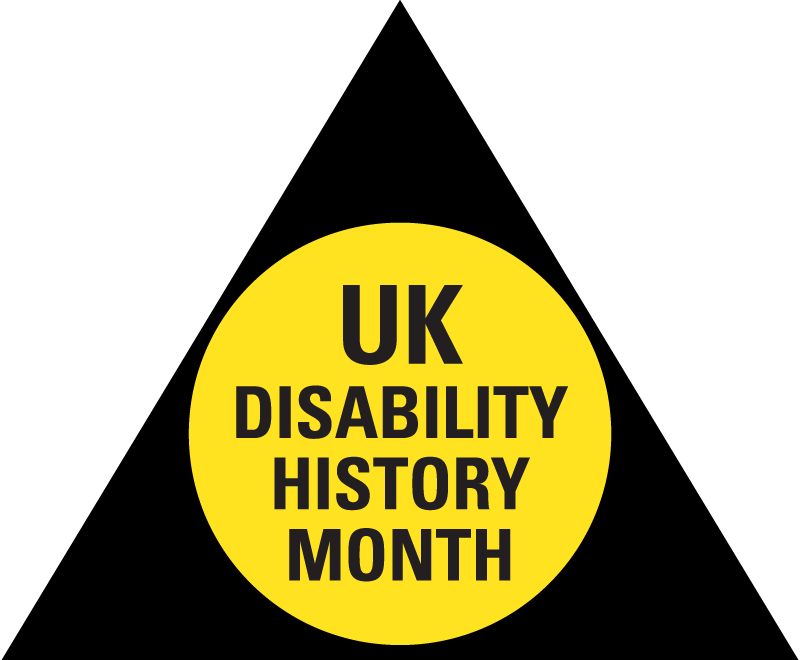Whether it’s writing protest songs or using musical instruments as part of the rehabilitation process, music and disability have historically had a complicated relationship. As a foretaste of the theme of this years’ UK Disability History Month – exploring the work of great disabled musicians throughout history – Gemma Nash caught up with composer and conductor Ben Lunn to explore what it means to be a young, disabled music maker today.

black and white photo of a young male musiciaion holding a score, standing near a table with a violin sitting on it
Ben Lunn Image © British Music Collection
Lunn is Drake Music’s latest associate musician and has been composing from the age of 18. He studied at the Royal Welsh College of Music and Drama and his work has been featured in many leading international festivals.
In November he will be performing his latest piece T-4 at DaDaFest in Liverpool. Commissioned by Drake Music at the start of this year, T-4 is a musical response to the theme ‘disability and the environment’ from a socio-political perspective.
Music and Austerity
Named after Aktion T4, Lunn’s composition draws parallels between what happened to disabled people during Nazi Germany and what is occurring now due to austerity.
In 1939 Adolf Hitler began Aktion T4, a policy framed as a euthanasia program to kill incurably ill, disabled and elderly people. While T4 was officially discontinued in 1941, killings continued secretly until Hitler’s defeat in 1945.
Using traditional musical instruments and technology, Lunn’s piece contrasts values that permitted the beginning of T4 with the values that have allowed the austerity policies of today. “A contrast that needs highlighting as the current human cost of austerity”, he says, “is shocking.” A recent study suggests that austerity policies have caused 120,000 deaths.
Within the piece Lunn uses the names of T4 victims he found in the Holocaust archive. He says “The interesting thing is with T4, even though the actions were truly horrific, the rhetoric wasn’t very in depth. All that was said was that these people are useless eaters, these are just people who are taking in more than they are giving out. Whereas the rhetoric around Jewish people was far more elaborate, such as plots to get rid of Germany via Judeo-Bolshevik ploys. A lot more had to be done to dehumanise Jewish people than disabled people. Arguably the same can be said for the way in which the current UK Government dehumanises disabled and elderly people.”
Music and Technology
Lunn brilliantly incorporates the Xbox Kinect motion sensor to trigger pre-recorded samples, including the names of the T4 victims. This sonic inclusion beautifully illustrates what it means to be a disabled music-maker in the world we live in – a world in which Fascism is on the rise and disabled people are suffering the brunt of the government’s cuts.
Adapted by Kris Gjerstad, the Kinect has 24 different conducting shapes and so Lunn can also change parameters like volume and panning as well as triggering samples. He found using the Kinect a really wonderful experience. Every single microscopic movement was making a response, enabling him to feel completely fused with the music. As a person with autism, this also helped him to feel more connected with the other musicians.
Music and Solidarity
Powerful, poignant and deeply moving, Lunn’s composition certainly represents the spirit of Disability History Month 2018 and our current struggle for justice. Just in the same way that Johnny Crescendo’s music encapsulated disability pride. Or Ian-Stanton lyrics captured disabled people’s fight for civil rights in the 1990s.
Alongside a superb selection of disabled composers, I look forward to Lunn performing T-4 at DaDaFest 2018 Destination Sound on Wednesday 28 November.
From Disability Arts Online http://disabilityarts.online/projects/disability-history-month/
